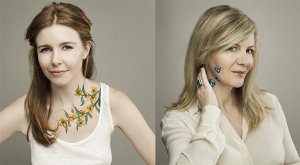As homeopathy has been officially established in most European countries for over a century and is the number one alternative medicine practice, governments are now defining its practice more carefully. Switzerland, after a lengthy government investigation concluded that homeopathy is beneficial and an important part of health care and as such is now officially funding its practice through their national health scheme.
Other countries like Germany and France have a vital and well established homeopathic professional community. In 2013, Portugal, Belgium and Italy have passed special parliamentary Acts to establish homeopathy practice in law and define the practice and educational standards for professional homeopaths.
From the European Council for Homeopathy Web site:
In July, 2013 the Portuguese Parliament adopted a bill regulating 7 non-conventional (also called complementary) therapies including homeopathy, acupuncture, Traditional Chinese Medicine, naturopathy, herbal medicine, osteopathy and chiropractics. The law came into force on 2 September (Lei No. 71/2013) and in fact revived the 10-year old Law 45/2003 that was never implemented. The new law stipulates that these CAM modalities can only be practised by professionals with higher education qualifications and a publicly registered professional license.
Access to the registers of these CAM professions will depend on the ownership of a degree in one of the therapies, obtained following an education consistent with the requirements set by members of the Government responsible for health and higher education. Requirements for the practice of these modalities should follow the WHO guidelines and those issued by the Portuguese Agency for Assessment and Accreditation of Higher Education and the Directorate-General of Health.
The exercise of the professions is permitted only to holders of a professional license issued by the Central Administration of the Health System. A register will allow identification of the health professionals holding the adequate qualifications. The use of professional titles is only permitted to holders of such a license.
In Belgium, on the 12th of July 2013, the Belgian Council of Ministers decided that homeopathy is a medical act. Only medical doctors, dentists and midwives are entitled to practise homeopathy, dentists and midwives only within their competence.
The Council of Ministers based their approval on the official recommendation given by the Belgian Minister of Public Health, Ms Laurette Onkelinx – formulated after 21 meetings of the Unio Homeopathica Belgica representatives and university professors with Health Ministry representatives. With this decision, the Colla law on non-conventional practices (named after Minister Colla), adopted by the Belgian Parliament in 1999, can finally be fully implemented after 14 years of struggle. This law only regulates human medicine. The practice of homeopathy by veterinary doctors will be discussed in a separate commission.
In Italy, on 7 February 2013, the State and the Regions and Autonomous Provinces Conference approved the national rules for the education in Complementary Medicine. The process which led to this important event started in 2007, when the Tuscan Regional Council approved the Regional Law of Tuscany n. 9/2007, which regulates education and practice of Complementary Medicine (CM) by medical doctors, dentists, pharmacists and veterinarians. The legislation stipulates that Regional Professional Associations are to draw up lists of professional experts in CM based on the requirements defined by the Regional Law and by the Regional Committee for CM education, and to issue a specific certification.
On 20 December 2012, a proposal of National Agreement among the State and the Regions and Autonomous Provinces on rules of CM education, that includes at the moment only medical doctors and dentists, was approved by all the Italian Regional Presidents and finally the Agreement was officially signed on 7 February 2013.
Now Italy is one of the few European countries with a national law stating the rules for education in Complementary Medicine.
The agreement defines the training and accreditation of complementary medicine professionals and education institutions and provides for the establishment of lists of CM professionals who practice acupuncture, herbal medicine and homeopathy. Those wishing to register must have a certificate issued by accredited public and private training centres and must have completed a course of no less than 500 training hours, included 100 hours of clinical practice, after having passed a theoretical and practical exam and discussed a thesis. Courses for medical doctors cannot last less than 3 years.
Filed under: Homeopathy, Homeopathy and Conventional Medicine, Homeopathy and News | Tagged: homeopathy belgium, homeopathy europe, homeopathy france, Homeopathy Germany, homeopathy government, homeopathy italy, homeopathy news, homeopathy portugal | Leave a comment »


